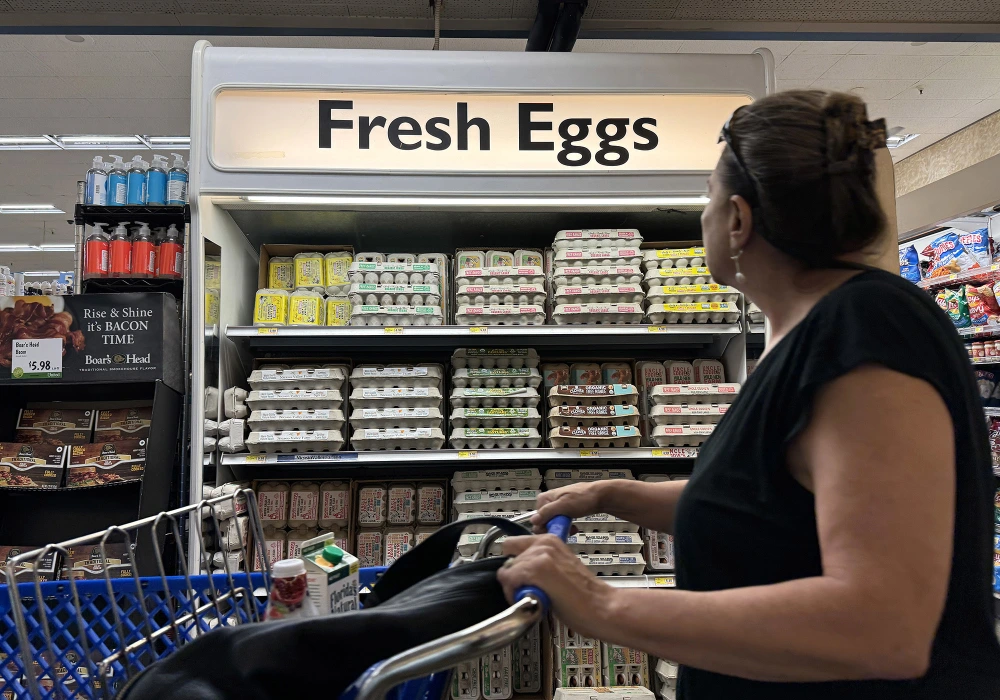There are two primary reasons for the surge: bird flu, which has reduced egg supply, and the strong consumer holiday season demand.
It’s for grocery shoppers, as the price of those Grade A eggs has spiked in recent months, just two years after egg prices soared to record highs.
The average retail price of eggs in the U.S. has risen 38% since November 2023, according to consumer price index data issued Wednesday. Prices rose 8% last month alone.
A carton of a dozen large Grade A eggs cost $3.65 in November, up from $2.14 a year earlier, according to the U.S. Bureau of Labor Statistics.
There are two primary reasons for the surge: bird flu, which has reduced egg supply, and the strong consumer demand that’s typical around the winter holiday season, according to economists and market analysts.
“There’s a very real chance we could flirt with record highs” for prices, said Brian Moscogiuri, vice president of Eggs Unlimited, an egg supplier.
Grade A egg prices peaked at $4.82 a dozen in January 2023, having jumped from $1.93 in January 2022.
At a time of high pandemic-era inflation, eggs were a standout, with an annual inflation rate of 60% in calendar-year 2022, according to CPI data. They even entered the zeitgeist: Pop star Taylor Swift told comedian Trevor Noah at the Grammy Awards in February 2023 that her fans would “get on it” to help lower egg prices.
How a ‘serious’ bird flu outbreak is affecting egg prices
Now, as in 2022-23, highly pathogenic avian influenza — better known as bird flu — is a big culprit.
Bird flu is a highly contagious and lethal disease among birds, including chickens. The U.S. is in the midst of a “serious outbreak,” Moscogiuri said.
The disease entered the U.S. in late 2021 and has lingered, experts said. Prior to that, the last time bird flu had impacted egg-laying chickens at commercial farms was in 2015, Moscogiuri said.
About 33 million commercial egg layers have been killed by bird flu in 2024, according to data from the Centers for Disease Control and Prevention.
That has “caused an egg supply shortage,” said Ryan Hojnowski, an egg analyst at Expana, an agricultural market research firm.








